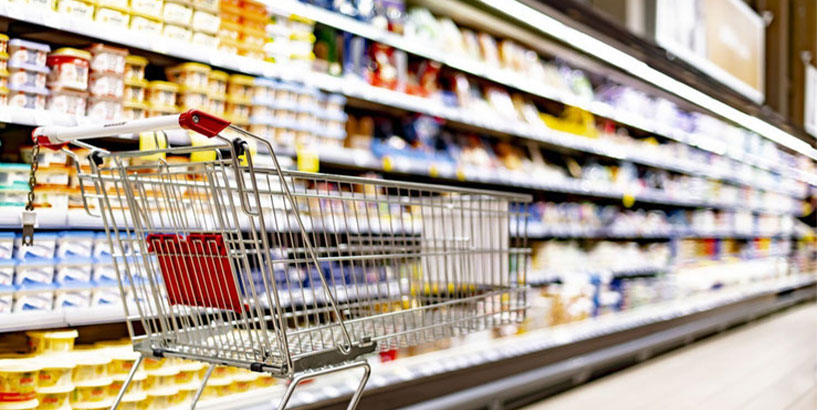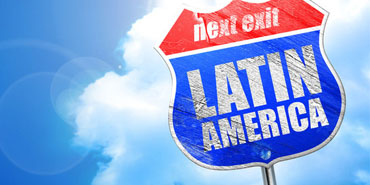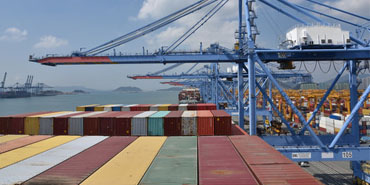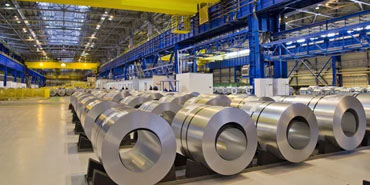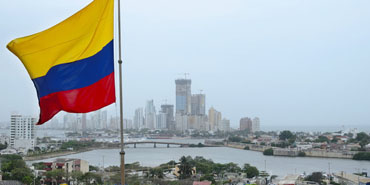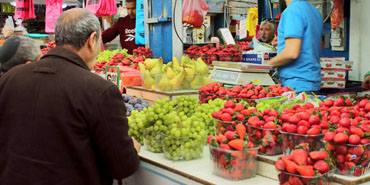Alicorp is a mass consumer company mainly providing food and cleaning products and is a leader in the Peruvian market. It has commercial operations in eight Latin American countries: Argentina, Brazil, Chile, Colombia, Ecuador, Peru, Mexico, and Honduras. It exports to more than 23 countries and is the second largest consumer products company in the Andes.
Mass consumption products are products in high demand, those required by all strata of society. Categories include all manufacturers, sellers, and marketers of physical goods sold through retailers.
MASS CONSUMPTION IN PERU
Peru started 2022 with growth; in January, national production expanded by 2.86% compared to the same month of the previous year. According to Kantar's latest Consumer Insights report, Peruvian household consumption closed 2021 with a 3% growth in volume and 8% in value, compared to 2020.
The mass consumption and retail sectors were the sectors with the highest growth in 2022, showing a growth rate of 17.8%.
Looking at the development by baskets on an annual basis, all had a positive performance; and although Alimentos did not manage to grow in volume (2021 vs. 2020), the level achieved vs. the pre-pandemic period stands out, growing 14%.
A COMPANY WITH A GOOD BUSINESS STRATEGY
Alicorp is a company with more than 60 years of history that started as an oil and soap company. It has commercial operations in 8 Latin American countries, more than 150 of its own brands, and 4 business lines.
Its four business lines are: mass consumption, focused on food, home care and personal care; B2B, ingredients and supplies for the Bakery, Gastronomy, and Large Industries sectors; Aquaculture, focused on balanced feed for shrimp, salmon, and fish; and finally, Milling, dedicated to the production of refined flours and oils made from sunflower and soybean seeds.
During 2021, the company showed strong growth overall, with consolidated sales reaching S/ 12,228 million, 30.8% more than the sales recorded a year earlier. Likewise, the consolidated EBITDA result for 2021 was S/ 1,315 million, 17.5% more than in 2020.
AN EXCEPTIONAL HISTORICAL TRAJECTORY
Alicorp began operations in 1956 under the name of Anderson Clayton & Company, an oil and soap manufacturer. In 1971, the Romero Group acquired Anderson Clayton & Company, and thus took the name Compañía Industrial Perú Pacífico S.A. (CIPPSA).
In 1993, CIPPSA merged with two companies of the Romero Group: Calixto Romero S.A. and Oleaginosas Pisco S.A.
In 1995, CIPPSA absorbed La Fabril S.A. and Consorcio Distribuidor S.A., thus assuming the name Consorcio de Alimentos Fabril Pacífico (CFP).
In 1996, CFP absorbed by merger the companies Nicolini Hermanos S.A. and Compañía Molinera del Perú S.A. In 1997, Alicorp S.A.A. was created, initiating a new stage of business consolidation.
In 2005, the expansion process in Latin America began, starting exports to Ecuador, Colombia, Argentina, Chile, and Brazil.
In 2008, the company arrived in Argentina through the sale of personal care products by integrating The Value Brand Company. During 2010, the company continued to expand in Argentina through Okebon, a recognized brand of cookies.
In 2012, it acquired the Sayón portfolio in Peru and arrived in Chile with its animal nutrition business through Salmofood.
In 2013, the company opened a new market in Brazil through the acquisition of Pastificio Santa Amália, a leading mass consumption brand in the state of Minas Gerais.
In 2014, Vitapro, its aquaculture business, was born and Global Alimentos and its cereal brand Angel were acquired.
During 2015, its B2B business became Alicorp Soluciones and MasterBread was born, focused on providing solutions in frozen bread.
In 2018, Fino and Sao were acquired, the most important oil, milling, and mass consumption companies in Bolivia. During 2019, the company reaffirmed its commitment in Peru with the acquisition of the industrial company Intradevco.
SUSTAINABLE COMMITMENT
The company guides its operations through a shared value generation approach. Decisions are made that involve not only the economic aspect but also the social and environmental aspects. Strategies are focused on three axes: welfare, environmental care, and value chain development.
Regarding welfare the company is attentive to the needs and new consumption trends of its consumers in order to promote balanced habits and healthy lifestyles. This is achieved through a responsible marketing policy, offering accurate nutritional information about products, among other actions.
To care for the environment, the company seeks to make operations efficient in order to reduce the environmental impact generated and achieve an efficient use of resources. These efficiencies are addressed on three fronts: energy consumption (between 2010 and 2018, operational efficiency was increased by reducing energy consumption by 26% for each ton produced); waste management (during 2018, Alicorp recycled 53% of its waste, equivalent to 9,883.71 tons of plastic, cardboard, and wood, among other materials); and finally, waste management.
Concerning value chain development, the objective is to strengthen the capabilities of stakeholders in order to encourage entrepreneurship and promote employability. This is achieved through various programs such as: Youth Job Training, through which, since its inception in 2010, more than 1,700 young people have graduated as operators in Food Industries in Alicorp; Sustainable Palm Program, which promotes sustainable Peruvian palm agroindustry, providing training to more than 1,000 farmers so they can opt for an RSPO certification which ensures the sustainable origin of the palm; and finally, Grow Together, through which training is provided to businesses, especially in the segment of restaurants and bakeries, which have been strongly affected by the pandemic.



